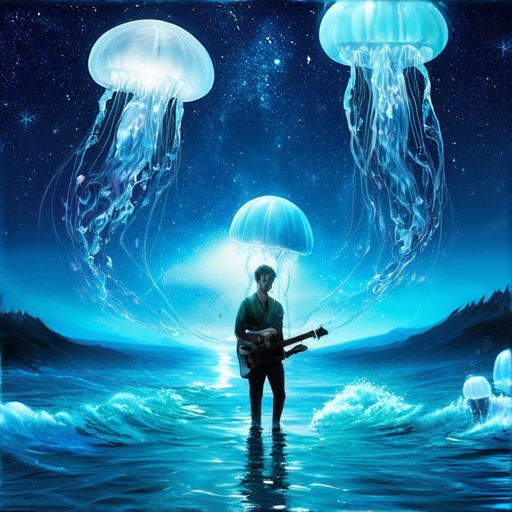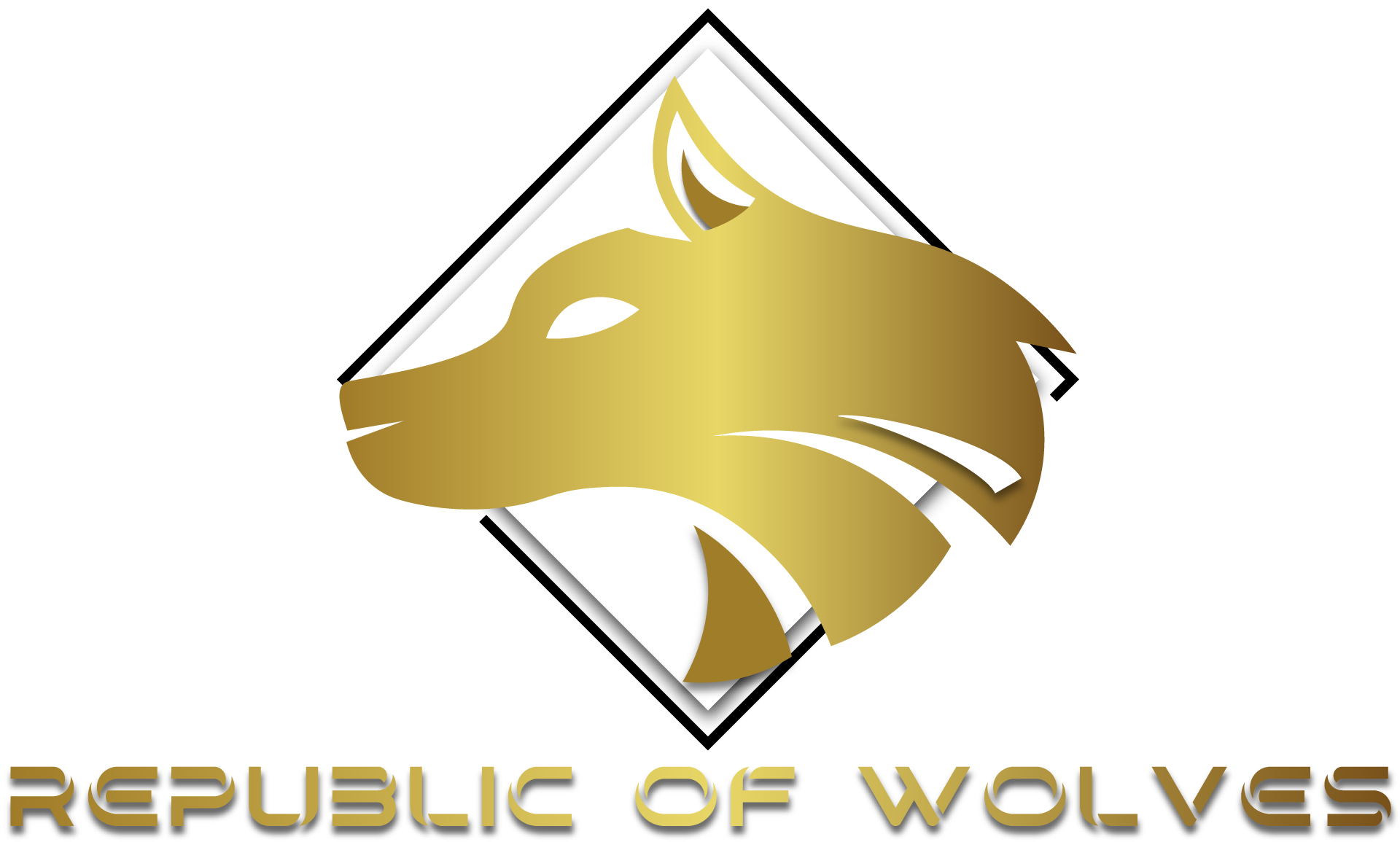For those who find solace in the universal language of music, creating a platform where musical expression knows no bounds is a dream come true. A music blog serves as a sanctuary for artists, musicians, and music enthusiasts alike, offering a space to share, discover, and connect with others who speak the same sonic dialect. By delving into the world of music blogging, one can unlock the power of music promotion and self-discovery, leveraging online platforms to showcase talent, build communities, and foster meaningful connections.

Writing for a Music Blog: Tips and Best Practices
We’re excited to share our expertise on what to write about on a music blog, specifically tailored for Republic of Wolves.
-
Know Your Audience
As a music blog focused on indie music, we cater to fans who crave in-depth stories about their favorite artists, bands, and genres. Our content aims to inspire and connect with these enthusiasts, making them feel part of a larger community.
-
Stay Up-to-Date with Industry Trends
Indie music is constantly evolving, with new artists emerging and old favorites continuing to push boundaries. We keep our readers informed about the latest developments, from album releases to festival announcements.
-
Highlight Competitors and Collaborators
We believe in acknowledging the competition and showcasing how our artists stand out. By mentioning fellow musicians and industry professionals, we demonstrate our commitment to the music community and foster meaningful connections.
-
Naturally Incorporate Links and Keywords
To enhance user experience and SEO, we strategically incorporate links to relevant pages, such as artist profiles, event calendars, and genre-specific articles. Our goal is to provide valuable information while avoiding excessive linking.
-
Use Authentic Tone and Voice
As Republic of Wolves, we write in the first person, sharing our passion and expertise with our audience. Our tone is approachable, yet professional, reflecting the unique personality of our brand.
-
Interlink Strategically
We utilize the provided links to create a seamless user experience, connecting related articles and topics through internal and external linking. This ensures our readers can easily navigate our content and discover new music.
-
Maintain Clarity and Relevance
We avoid repetitive anchor text and unnecessary linking, focusing on providing high-quality content that resonates with our audience. By doing so, we establish ourselves as authorities in the indie music scene.
-
Follow Best Practices for SEO
We adhere to the latest SEO guidelines, ensuring our content ranks highly in search engine results and provides value to users. By prioritizing user experience and relevance, we aim to become the go-to source for indie music enthusiasts.
What is an Expression Through Music Called?
Musical expression refers to the unique qualities and characteristics that artists convey through their music, going beyond the literal meaning of the notes and melodies.
- Dynamics: Refers to the varying degrees of loudness and softness in music, adding emotional depth and nuance to the overall sound.
- Articulation: Describes how notes are attacked and released, influencing the overall texture and feel of the music.
- Phrasing: Encompasses the way musicians group notes together to create meaningful units of sound, often conveying emotions and telling stories.
These elements work together to create a rich tapestry of sound, allowing listeners to connect with the artist’s vision and emotions on a deeper level.
Understanding Musical Expression
- Western music notation primarily focuses on specifying pitch and note duration, leaving room for interpretation and creativity.
- Factors like tempo, dynamics, and articulation can greatly impact the mood and atmosphere of a piece, making musical expression a vital aspect of composition and performance.
- By exploring and mastering these elements, musicians can develop their unique voice and style, setting themselves apart in the world of music.
Exploring Musical Expression Further
For those interested in learning more about musical expression, there are numerous resources available online, including tutorials, articles, and videos from reputable sources.
Some notable websites and platforms for music education and inspiration include:
By embracing the complexities and nuances of musical expression, musicians can unlock new levels of creativity and connection with their audience.

Teaching Expression in Music
To effectively teach expression in music, consider the following approaches:
- Emphasize Emotional Connection: Encourage students to tap into their emotions and connect with the music on a deeper level.
- Focus on Dynamics and Articulation: Teach students how to control volume, tempo, and articulation to convey emotion and expression.
- Practice Improvisation and Experimentation: Allow students to freely improvise and experiment with different sounds and techniques to develop their unique expression.
- Study Musical Models and Influences: Expose students to various musical styles and influences to broaden their understanding of expression and creativity.
- Cultivate Listening Skills: Develop students’ listening skills through active listening exercises and discussions to enhance their appreciation of musical expression.
- Encourage Collaboration and Feedback: Foster a supportive environment where students can share their work, receive feedback, and learn from one another.
- Make Music Relevant and Engaging: Connect music to students’ lives and interests to increase motivation and engagement.
- Develop Technical Skills: Provide students with a solid foundation in technical skills, such as reading sheet music, playing instruments, and singing.
- Foster Creativity and Risk-Taking: Encourage students to take risks and explore new ideas, fostering a growth mindset and creative expression.
- Lead by Example: Demonstrate passion, enthusiasm, and dedication to teaching expression in music, inspiring students to do the same.
By incorporating these approaches into your teaching, you’ll help students develop a deeper understanding of musical expression and cultivate a lifelong love of music.

Monetizing a Music Blog
We’ve built a community around indie music, and now we’re sharing our secrets on how to turn that passion into a profitable venture.
Revenue Streams for Music Blogs
- Affiliate Marketing: We partner with music gear companies to promote products and earn commissions on sales made through our unique referral link.
- Selling Merchandise: Our fans love our exclusive designs, and we sell them online through our website and at live events.
- Display Ads: We work with reputable ad networks to display targeted ads on our site, generating revenue based on clicks and impressions.
- Musicians Lessons: We offer private lessons and group classes, teaching aspiring musicians the skills they need to succeed.
- Patreon Support: Our loyal fans support us financially, receiving exclusive content and early access to new music in return.
- Sponsored Content: Brands reach out to us to collaborate on sponsored posts, product reviews, and artist takeovers.
- Google AdSense: We earn money from ads displayed on our YouTube channel and podcast episodes.
- Membership Programs: We offer exclusive benefits, such as early access to new music, to our members who pay a recurring fee.
- Live Events: We organize concerts, festivals, and workshops, generating revenue from ticket sales and sponsorships.
- Brand Partnerships: We partner with music-related businesses to promote their services and products to our audience.
- Amazon Associates: We earn commissions by promoting Amazon products and services to our audience.
- YouTube Ad Revenue: We monetize our YouTube channel with ads, earning money from views and clicks.
- Podcast Sponsorships: We partner with brands to sponsor our podcast episodes, promoting their products and services to our listeners.
- Music Licensing: We license our music for use in films, TV shows, commercials, and video games.
- Course Sales: We create and sell online courses teaching music production, songwriting, and other music-related topics.
- Consulting Services: We offer consulting services to musicians, helping them navigate the music industry and achieve their goals.
- Music Distribution: We distribute our music through various platforms, earning a percentage of the revenue generated from sales and streams.
- Radio Airplay: We get paid for radio airplay, which helps increase our visibility and reach a wider audience.
- Music Publishing: We publish our own music, earning royalties from sales, streams, and public performances.
- Sync Licenses: We license our music for use in film, TV, and commercial projects, earning sync fees.
- Merchandise Sales: We sell merchandise, such as T-shirts, stickers, and posters, online and at live events.
- Donations: We accept donations from our fans, which helps us continue creating content and promoting independent music.
- Grants and Funding: We apply for grants and funding opportunities to support our music projects and initiatives.
- Music Therapy: We offer music therapy sessions, using music to help people with physical, emotional, or cognitive challenges.
- Music Education: We provide music education programs, teaching children and adults how to play instruments and sing.
- Music Production Services: We offer music production services, helping artists record, mix, and master their music.
- Music Promotion: We promote independent music, helping artists gain exposure and build their fanbase.
- Music Journalism: We write music reviews, interviews, and features, promoting emerging talent and established artists alike.
- Music Photography: We take photos of live performances, album covers, and music-related events, selling prints and licensing images.
- Music Videography: We create music videos, promotional clips, and live concert footage, selling rights and licensing content.
- Music Composition: We compose music for film, TV, commercials, and video games, earning sync fees and royalties.
- Music Arrangement: We arrange music for orchestras, bands, and solo artists, earning fees for our services.
- Music Transcription: We transcribe sheet music, guitar tabs, and drum notation, selling digital files and printed copies.
- Music Editing: We edit audio recordings, removing noise, fixing errors, and enhancing sound quality.
- Music Mixing: We mix audio recordings, balancing levels, EQ, and compression to create a polished sound.
- Music Mastering: We master audio recordings, preparing them for distribution and playback on various devices.
- Music Restoration: We restore damaged or degraded audio recordings, recovering lost data and improving sound quality.
- Music Duplication: We duplicate CDs, DVDs, and vinyl records, selling physical copies and digital downloads.
- Music Packaging: We design and print CD inserts, DVD cases, and vinyl sleeves, creating professional-looking packaging.
- Music Distribution: We distribute music through various platforms, earning a percentage of the revenue generated from sales and streams.
- Music Promotion: We promote independent music, helping artists gain exposure and build their fanbase.
- Music Journalism: We write music reviews, interviews, and features, promoting emerging talent and established artists alike.
- Music Photography: We take photos of live performances, album covers, and music-related events, selling prints and licensing images.
- Music Videography: We create music videos, promotional clips, and live concert footage, selling rights and licensing content.
- Music Composition: We compose music for film, TV, commercials, and video games, earning sync fees and royalties.
- Music Arrangement: We arrange music for orchestras, bands, and solo artists, earning fees for our services.
- Music Transcription: We transcribe sheet music, guitar tabs, and drum notation, selling digital files and printed copies.
- Music Editing: We edit audio recordings, removing noise, fixing errors, and enhancing sound quality.
- Music Mixing: We mix audio recordings, balancing levels, EQ, and compression to create a polished sound.
- Music Mastering: We master audio recordings, preparing them for distribution and playback on various devices.
- Music Restoration: We restore damaged or degraded audio recordings, recovering lost data and improving sound quality.
- Music Duplication: We duplicate CDs, DVDs, and vinyl records, selling physical copies and digital downloads.
- Music Packaging: We design and print CD inserts, DVD cases, and vinyl sleeves, creating professional-looking packaging.
- Music Distribution: We distribute music through various platforms, earning a percentage of the revenue generated from sales and streams.
- Music Promotion: We promote independent music, helping artists gain exposure and build their fanbase.
- Music Journalism: We write music reviews, interviews, and features, promoting emerging talent and established artists alike.
- Music Photography: We take photos of live performances, album covers, and music-related events, selling prints and licensing images.
- Music Videography: We create music videos, promotional clips, and live concert footage, selling rights and licensing content.
- Music Composition: We compose music for film, TV, commercials, and video games, earning sync fees and royalties.
- Music Arrangement: We arrange music for orchestras, bands, and solo artists, earning fees for our services.
- Music Transcription: We transcribe sheet music, guitar tabs, and drum notation, selling digital files and printed copies.
- Music Editing: We edit audio recordings, removing noise, fixing errors, and enhancing sound quality.
- Music Mixing: We mix audio recordings, balancing levels, EQ, and compression to create a polished sound.
- Music Mastering: We master audio recordings, preparing them for distribution and playback on various devices.
- Music Restoration: We restore damaged or degraded audio recordings, recovering lost data and improving sound quality.
- Music Duplication: We duplicate CDs, DVDs, and vinyl records, selling physical copies and digital downloads.
- Music Packaging: We design and print CD inserts, DVD cases, and vinyl sleeves, creating professional-looking packaging.
- Music Distribution: We distribute music through various platforms, earning a percentage of the revenue generated from sales and streams.
- Music Promotion: We promote independent music, helping artists gain exposure and build their fanbase.
- Music Journalism: We write music reviews, interviews, and features, promoting emerging talent and established artists alike.
- Music Photography: We take photos of live performances, album covers, and music-related events, selling prints and licensing images.
- Music Videography: We create music videos, promotional clips, and live concert footage, selling rights and licensing content.
- Music Composition: We compose music for film, TV, commercials, and video games, earning sync fees and royalties.
- Music Arrangement: We arrange music for orchestras, bands, and solo artists, earning fees for our services.
- Music Transcription: We transcribe sheet music, guitar tabs, and drum notation, selling digital files and printed copies.
- Music Editing: We edit audio recordings, removing noise, fixing errors, and enhancing sound quality.
- Music Mixing: We mix audio recordings, balancing levels, EQ, and compression to create a polished sound.
- Music Mastering: We master audio recordings, preparing them for distribution and playback on various devices.
How Much Does a Blog Earn Per 1,000 Views?
We’ve analyzed various factors to determine how much a blog can earn per 1,000 views.
- Display Ads: On average, Indian blogs generate around 15 RPM from display ads, which translates to approximately ₹150 – ₹450 per 1,000 views.
- Text Ads: Similarly, text ads yield around 0.10 – 0.30 RPM, resulting in ₹100 – ₹300 per 1,000 views.
However, these figures may vary depending on several factors, including niche, audience engagement, ad placement, and monetization strategies.
- Niche: Blogs focused on high-demand niches like finance, technology, or health tend to attract more advertisers and generate higher revenue.
- Audience Engagement: Engaged audiences are more likely to click on ads, increasing the chances of earning higher revenue.
- Ad Placement: Strategically placing ads on high-traffic pages or sections can significantly impact earnings.
- Monetization Strategies: Effective monetization strategies, such as affiliate marketing, sponsored content, or membership programs, can supplement ad revenue.
As a result, the actual earnings per 1,000 views can range from ₹200 to ₹800 or more, depending on the blog’s performance and monetization efforts.
For instance, popular blogs like TechCrunch or The Verge might earn upwards of ₹1,500 to ₹3,000 per 1,000 views due to their massive audience and high demand for advertising space.
While these figures are estimates, they demonstrate the potential for blogs to earn significant revenue through targeted advertising and effective monetization strategies.
By optimizing their content, audience engagement, and monetization tactics, bloggers can increase their earnings per 1,000 views and maximize their online revenue streams.

Are Music Blogs Still a Thing?
In today’s digital age, the music industry has undergone significant changes, leaving many wondering if music blogs still hold relevance.
- We’re proud to say that music blogs are indeed still alive and kicking!
- However, they’ve had to adapt to the evolving landscape, focusing on providing unique perspectives and in-depth analysis to stand out from the crowd.
The Evolution of Music Blogs
Music blogs have transformed from mere platforms for sharing music reviews and news to becoming integral parts of the music ecosystem.
- They now offer exclusive interviews, behind-the-scenes stories, and artist spotlights, giving fans a deeper understanding of their favorite musicians.
- Additionally, music blogs have become hubs for discovering emerging talent, helping artists gain exposure and build their fanbase.
- With the rise of social media, music blogs have expanded their reach, incorporating features like podcasts, videos, and live event coverage to engage audiences.
Why Music Blogs Matter
Despite the proliferation of streaming services and social media, music blogs continue to play a vital role in the music industry.
- They provide a platform for artists to share their stories, connect with fans, and promote their work.
- Music blogs also serve as a resource for fans, offering expert opinions, recommendations, and insider knowledge on the latest music trends.
- By supporting independent artists and labels, music blogs help preserve the diversity and creativity of the music landscape.
Republic of Wolves’ Take
As a community-driven music blog, we’re committed to showcasing the best of indie music and providing a space for fans to connect and share their passion.
We believe that music blogs are essential to the music ecosystem, offering a unique blend of editorial content, artist support, and community engagement.
So, are music blogs still a thing? Absolutely! And we’re proud to be part of this vibrant and evolving community.
Learn more about our mission and discover the latest indie music trends.
Stay tuned for more updates, interviews, and behind-the-scenes stories from the world of indie music!

0 Comments